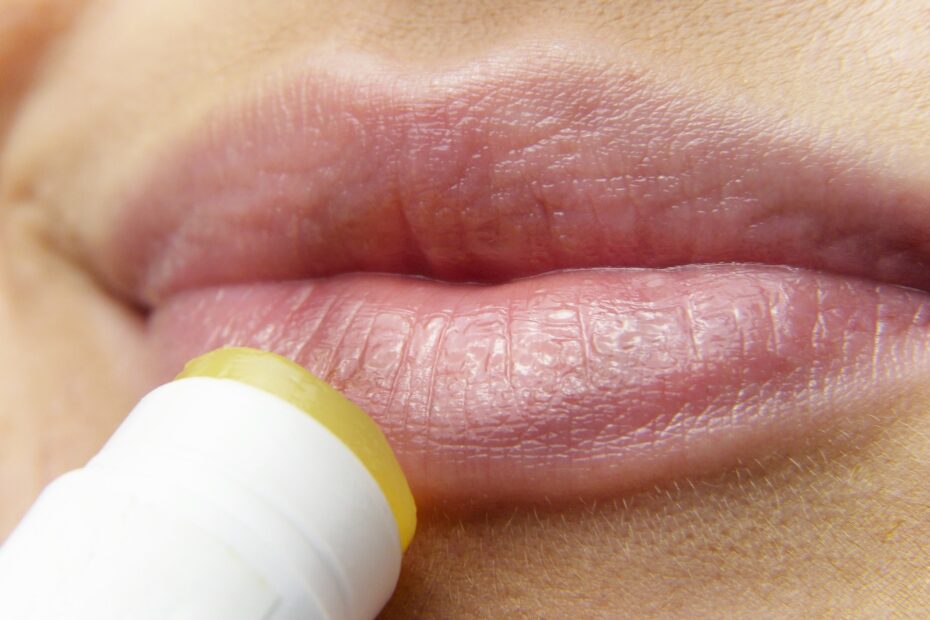Cold sores (fever blisters or Herpes simplex labialis) are an unsightly annoyance that plagues up to 10% of people more than five times per year. These tiny, fluid-filled blisters occur on and around your lips forming a scab when the blisters break. They usually resolve on their own without any treatment after two to three weeks. There’s currently no cure for cold sores but natural solutions can help your body recover more quickly.
CAUSES AND TRANSMISSION
Caused by the herpes simplex virus family—most commonly HSV-1 and less commonly HSV-2—estimates suggest that nearly 90% of the global population has HSV antibodies in their bloodstream but only one-third of those experience cold sores. The virus is highly contagious and transmitted through direct or indirect contact with cold sores by:
- Sharing of common items like toothbrushes, razors, cosmetics, towels, straws, and utensils
- Direct contact with fluid from the cold sore
- Touching items contaminated with saliva of a person with a cold sore
- Droplets spread by coughing and sneezing
- Sexual interactions
SYMPTOMS
The first sign of a cold sore is a tingling, itching, or burning sensation around the lips. This occurs for about a day before the blister erupts on the skin. Blisters frequently reoccur in the same spot. Symptoms can occur up to 20 days after your first exposure to the virus. The first time you experience an outbreak, you may also experience fever, headache, muscle aches, sore throat, painful gums, and swollen lymph nodes.
Children under five years of age may experience cold sore inside their mouth, which could be mistaken for a related condition called canker sores (aphthous ulcers). Canker sores, however, only involve the mucous membrane and are not caused by the HSV.
WESTERN TREATMENT
The primary treatment of cold sores involves antiviral medications, which can be topically or orally administered. Examples of antiviral medications used include: Acyclovir (Zovirax), Valacyclovir (Valtrex), Famciclovir, and Penciclovir (Denavir). An over-the-counter ointment called docosanol (Abreva) may also be recommended. Oral medications tend to work better than topical creams.
NATURAL SOLUTIONS
Monolaurin
Derived from a medium-chain fatty acid found in coconuts and palm kernels, monolaurin combines lauric acid and glycerin into a supplement form. It has been the subject of numerous preclinical studies that suggest it supports healthy immune function and responses to various challenges. Monolaurin potentially works by destroying the envelope (outer membrane) of viruses and interfering with viral replication. (1),(2) It has even shown specific activity against HSV-1 and HSV-2. (3)
How to use: For prevention, take 500–1,000 mg, six days per week, with a meal. Take 1,000 mg, three times daily with food during outbreaks.
L-Lysine
L-lysine is an essential amino acid used by the immune system to produce antibodies. Herpes virus activity relies on another amino acid L-arginine. Lysine interferes with the absorption of arginine suggesting it may reduce cold sore outbreaks. Clinical research shows that taking 1,000 mg of lysine three times daily reduces frequency and severity of cold sores. (4),(5),(6)
How to use: For prevention, take 1,000 mg, three times daily, preferably on an empty stomach.
Propolis Ointment
A brown, sticky substance collected from tree sap by bees, propolis is gaining attention for its immune-supportive benefits. Laboratory researched showed that two flavonoids found in propolis—chrysene and kaempferol—inactive the HSV. (7) A third flavonoid—quercetin—reduced HSV infection of cells and replication inside cells but only at high doses. Remarkably, one study concluded that a 3% propolis ointment was more effective than 5% acyclovir ointment for the management of HSV infection (genital herpes). (8) Additional research reported activity against cold sores. (9)
How to use: Apply propolis ointment four times daily. For prevention, take one 300 mg capsule (5:1 extract), six times per week.
Rhubarb and Sage Cream
A combination cream containing rhubarb and sage also demonstrated near equal efficacy as acyclovir ointment in a clinical study. (10)
How to use: Apply as directed on the product label.
Essential Oils
Several essential oils have shown antiviral activity against HSV-1 and HSV-2, including thyme, star anise, anise, sandalwood, rosemary, peppermint, rosalina, manuka, melissa, ginger, German chamomile, cajeput, bay laurel, and tea tree. (11) Many people report that the topical application of tea tree or melissa essential oil reduces the duration and severity of cold sores.
How to use: In a 0.5 ounce container, mix together 1 teaspoon of carrier oil, 1 teaspoon of glycerol powder, and 20 drops each of melissa, tea tree, and peppermint, and 5 drops each of sandalwood and rosemary. Using a cotton swab, apply a small amount of this mixture to the cold sore three to four times daily.
CONCLUSION
With regular use of natural solutions, you can reduce the frequency and severity of outbreaks.

Pingback: Херпес симплекс вирусна инфекция - Healthy Oils
Comments are closed.